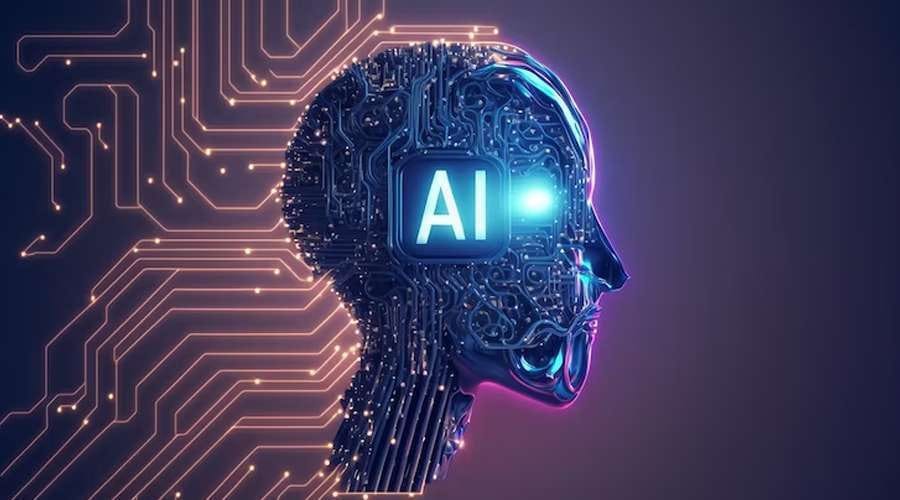The Impact of AI on the Job Market: Revolutionizing Careers
Artificial Intelligence (AI) is transforming industries across the globe, and the job market is no exception. As AI technologies continue to advance, they bring both opportunities and challenges for job seekers and employers. In this blog post, we will explore how AI is reshaping the job market in 2024, the skills needed to thrive in this new landscape, and how both job seekers and employers can harness the power of AI to their advantage.
1. AI-Driven Job Market Trends
AI is revolutionizing the job market in several key ways. Understanding these trends can help job seekers and employers stay ahead of the curve.
Increased Automation
AI-powered automation is taking over repetitive and mundane tasks, allowing employees to focus on more strategic and creative aspects of their jobs. This shift not only enhances productivity but also requires workers to develop new skill sets.
Personalized Job Matching
AI algorithms are making job matching more efficient by analyzing vast amounts of data to connect candidates with roles that perfectly match their skills and experiences. This personalized approach reduces the time spent on job searches and increases the chances of finding the right fit.
Remote Work Optimization
AI tools are optimizing remote work by facilitating virtual collaboration, project management, and performance tracking. This trend has expanded job opportunities beyond geographical boundaries, enabling companies to tap into a global talent pool.
2. Essential Skills for Thriving in an AI-Driven Job Market
As AI continues to shape the job market, certain skills are becoming increasingly valuable. Job seekers should focus on developing these skills to enhance their employability.
Technical Skills
- Data Analysis: Proficiency in data analysis and interpretation is crucial as AI relies heavily on data.
- Machine Learning: Understanding the basics of machine learning can open up numerous career opportunities.
- Programming: Knowledge of programming languages such as Python, R, and Java is essential for working with AI technologies.
Soft Skills
- Adaptability: The ability to adapt to rapidly changing technologies and work environments is vital.
- Critical Thinking: Strong critical thinking skills are necessary to analyze and solve complex problems.
- Emotional Intelligence: As automation takes over repetitive tasks, emotional intelligence becomes crucial for roles that require human interaction and empathy.
3. Leveraging AI for Job Seekers
Job seekers can use AI to their advantage in several ways to enhance their job search and career prospects.
AI-Powered Resume Builders
AI-driven resume builders can help create optimized resumes tailored to specific job descriptions. These tools analyze job postings and highlight relevant skills and experiences, increasing the chances of catching the employer’s eye.
Intelligent Job Search Platforms
AI-powered job search platforms like LinkedIn, Indeed, and Glassdoor use sophisticated algorithms to recommend jobs that match your profile and preferences. These platforms also provide insights into industry trends and salary benchmarks.
Virtual Interview Preparation
AI-based interview preparation tools simulate real interview scenarios and provide feedback on your responses. These tools can help improve your interview skills and boost your confidence.
4. AI in Recruitment: Benefits for Employers
Employers are also benefiting from AI in recruitment, leading to more efficient hiring processes and better talent acquisition.
Streamlined Recruitment Processes
AI can automate various stages of recruitment, from screening resumes to scheduling interviews. This automation speeds up the hiring process and allows recruiters to focus on strategic decision-making.
Improved Candidate Assessment
AI-driven assessment tools evaluate candidates based on skills, experiences, and cultural fit. These tools provide unbiased and data-driven insights, helping employers make better hiring decisions.
Enhanced Employee Retention
AI can analyze employee data to identify patterns and predict potential turnover. By understanding the factors that contribute to employee satisfaction and retention, employers can implement targeted interventions to retain top talent.
5. Navigating the Ethical Implications of AI
While AI brings numerous benefits, it also raises ethical concerns that must be addressed to ensure a fair and inclusive job market.
Bias and Fairness
AI algorithms can inadvertently perpetuate biases present in the training data. It is crucial to develop and implement fair and unbiased AI systems to promote diversity and inclusion in the workplace.
Data Privacy
The use of AI involves collecting and analyzing vast amounts of personal data. Ensuring data privacy and security is essential to maintain trust and protect individuals’ rights.
Job Displacement
Automation driven by AI can lead to job displacement in certain sectors. It is important to focus on reskilling and upskilling programs to help displaced workers transition into new roles.
Conclusion
AI is undoubtedly transforming the job market, creating both opportunities and challenges for job seekers and employers. By understanding the trends and developing the necessary skills, job seekers can enhance their career prospects, while employers can leverage AI to improve recruitment and retention. Navigating the ethical implications of AI is crucial to ensure a fair and inclusive job market. Embrace the power of AI, stay adaptable, and seize the opportunities it brings to thrive in the evolving job landscape of 2024.

